Commonwealth Games protests to highlight UK’s toxic, anti-LGBTQ+ colonial legacy
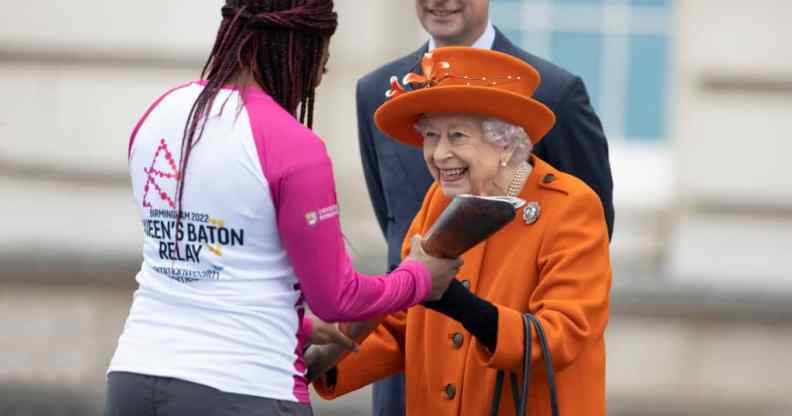
Queen Elizabeth II presents the Commonwealth Games baton to British Paralympic athlete Kadeena Cox. (WPA Pool/Getty)
The Commonwealth Games opening ceremony will coincide with an urgent protest highlighting toxic, colonial-era anti-LGBTQ+ laws across the bloc.
According to veteran human rights campaigner Peter Tatchell, who is organising the protest, 35 of 56 Commonwealth countries still criminalise same-sex sexual relations.
The bulk of those laws were introduced under British colonial rule.
Tatchell and LGBTQ+ people from some of those Commonwealth countries will be joined by the wider community at two demonstrations due to take place in Birmingham on Thursday (28 July).
The protests will coincide with the arrival of the Queen’s Baton in Birmingham’s Aston Hall, marking the opening of the 2022 Commonwealth Games.
LGBTQ+ athletes from many Commonwealth countries don’t have equal opportunities because of regressive, colonial-era laws, Tatchell tells PinkNews.
“They would be jailed, not selected – no matter how good they are,” he says.
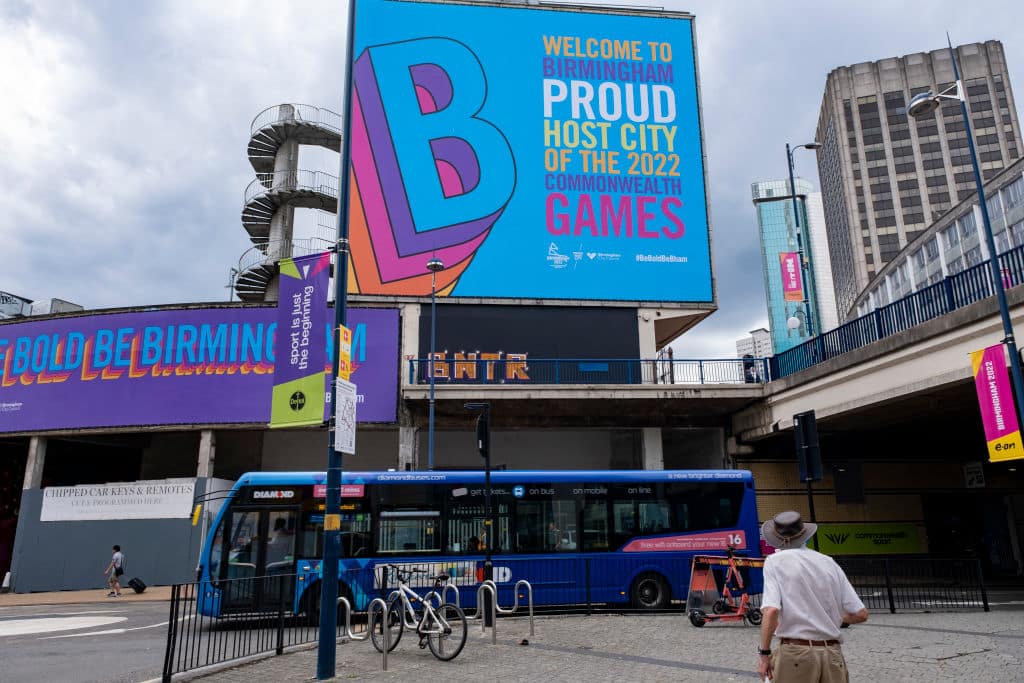
Signage promoting the proud host city of the Birmingham 2022 Commonwealth Games on 27 July 2022. (Mike Kemp/In Pictures via Getty)
“Most people, even LGBTQ+ people, have no idea about the scale of homophobic, biphobic and transphobic persecution in the Commonwealth.
“This has been going on for decades and hardly anybody has done anything to highlight it.”
LGBTQ+ people who have fled Commonwealth countries will join the protest
Tatchell will be joined at the protest by LGBTQ+ people who have fled Commonwealth countries due to persecution.
“Some of them have been arrested, beaten by the police, jailed and tortured. This is in complete violation of the Commonwealth charter which guarantees equal treatment and protection against discrimination to every Commonwealth citizen without qualification or exception,” he says.
“Over 62 per cent of Commonwealth countries criminalise same-sex relations. Seven of the 35 countries have life imprisonment. In parts of Nigeria gay people face the death penalty and recently three alleged gay men have been sentenced to death by stoning.”
Tatchell’s protests will also draw attention to the impact British colonialism has had on LGBTQ+ people in Commonwealth countries.
“In most of these Commonwealth countries the criminalisation of LGBTQ+ people was imposed by Britain in the 19th century when it was the colonial power. These are not authentic indigenous national laws – they are the toxic legacy of British imperialism,” Tatchell says.
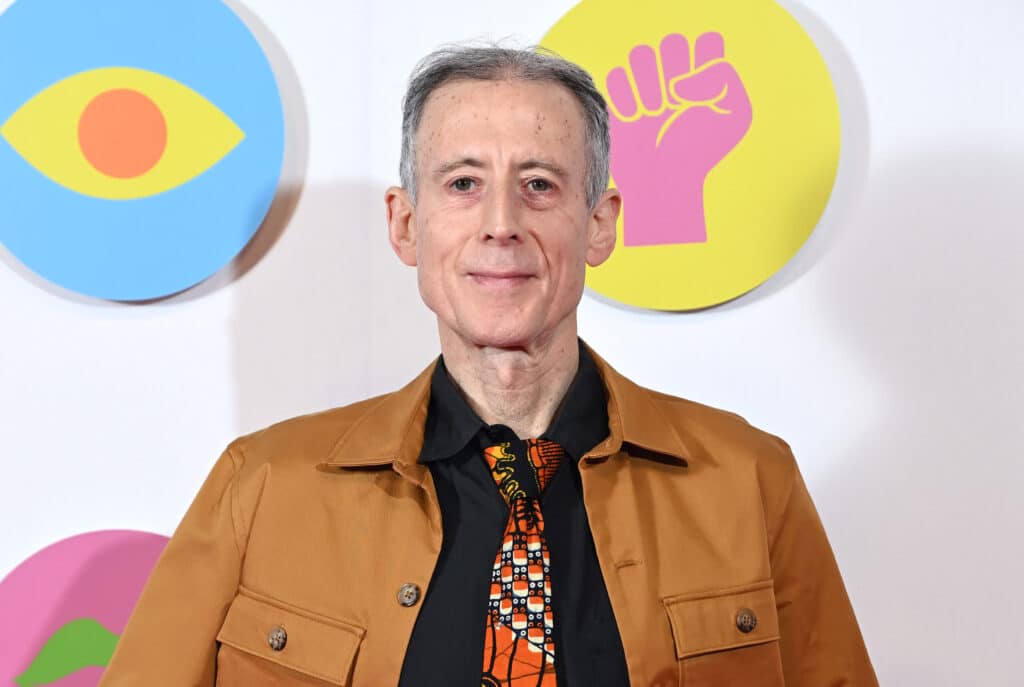
LGBTQ+ activist Peter Tatchell. (Karwai Tang/WireImage)
Tatchell would like to see the Commonwealth Games continuing into the future, but he wants countries that persecute LGBTQ+ people to be barred from hosting.
“The Commonwealth Games Federation has recently boasted that the games are inclusive and open for everyone but that is not true because an openly LGBT+ athlete would never be selected for their national team by two-thirds of the Commonwealth countries where homosexuality is illegal,” he says.
“The games are not fully equal or inclusive.”
All LGBTQ+ people must be ‘free and equal’ – Tom Daley
Tatchell is joined in his campaign by Olympic diver Tom Daley, who pointed out that half of all countries in the world that criminalise homosexuality are in the Commonwealth.
“Seven Commonwealth nations have a maximum penalty of life imprisonment under laws imposed by Britain in the 19th century when it was the colonial power,” Daley said in a statement.
“Every single person should be free to live their true authentic self, no matter where they are born or who they are. We must all keep working until everyone is free and equal.”
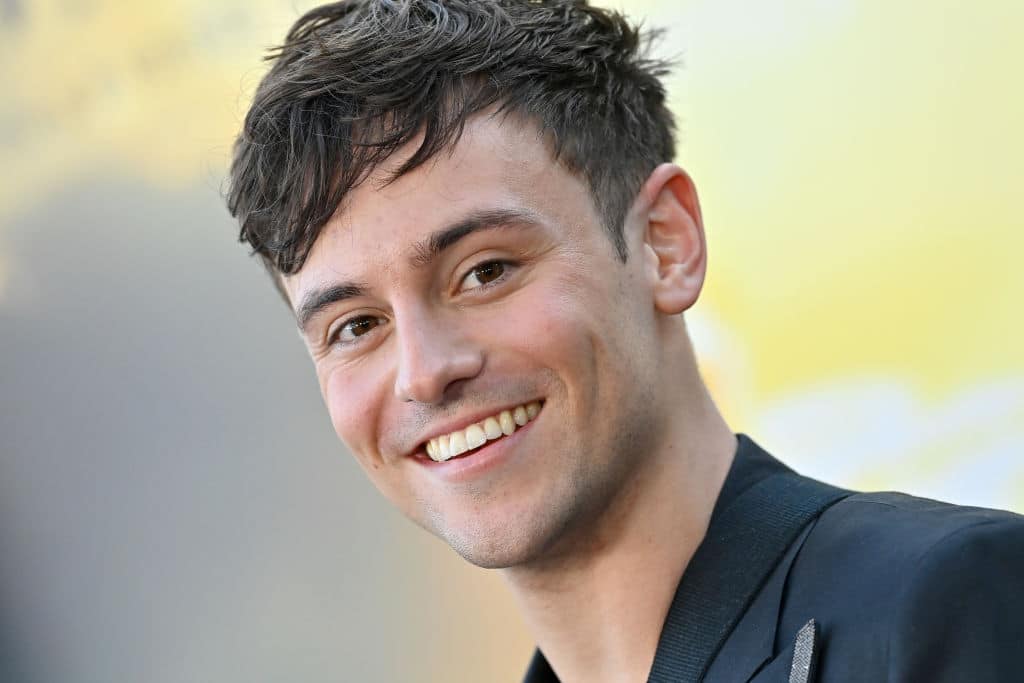
Tom Daley. (Getty)
That’s echoed by professional swimmer Michael Gunning. He tells PinkNews that such laws inevitably have a knock-on effect on LGBTQ+ athletes from those countries, who end up suppressing their true identities.
That was Gunning’s experience on the Jamaican swimming team.
“As the only out Jamaican, I was petrified on how I would be treated, and it takes a toll on your performances,” Gunning says.
“Sport gives athletes an amazing platform to inspire the world, but out of fear so many people from these countries that criminalise their sexuality end up suppressing their true self until after their sporting career, again making the strain and pressure on them as an athlete 10 times more prevalent.”
He has a clear message for leaders in Commonwealth countries that criminalise same-sex sexual relations.
“Gay rights are human rights. I understand it’s hard to change viewpoints from colonial-era times, but the time to act is now,” Gunning says.
“The LGBTQ+ community in these countries need to be protected, and we need to start acting now to help change these laws to make life equal for all.”
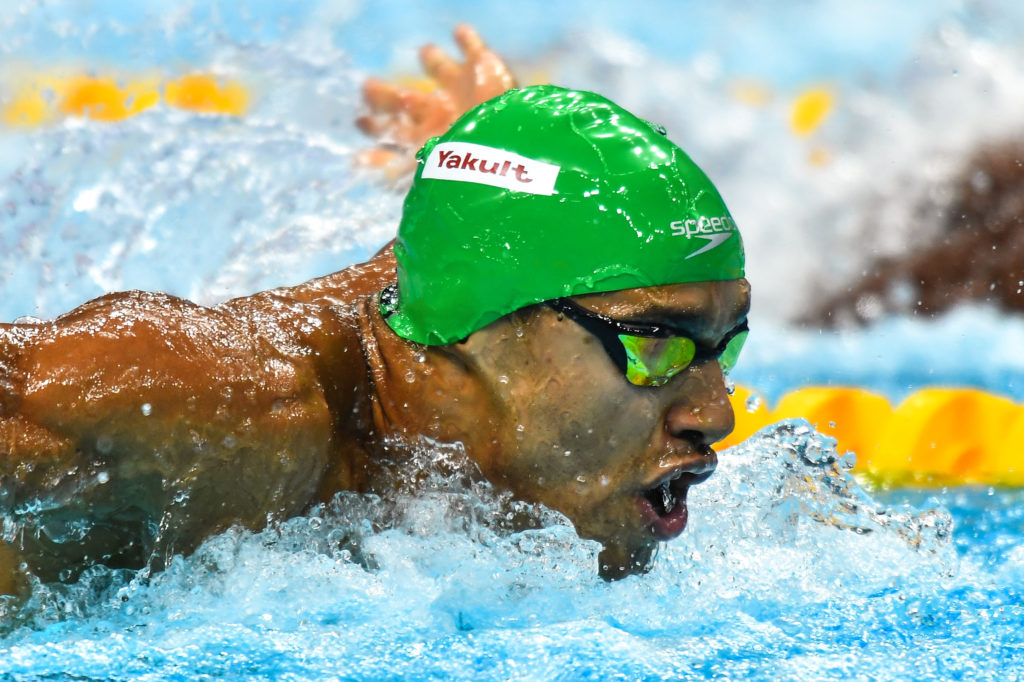
Michael Gunning during the Budapest 2017 FINA World Championships on July 25, 2017 in Budapest, Hungary. (Lukasz Laskowski / Press Focus)
The Commonwealth Games have been held every four years since 1930, but in recent years, activists have drawn attention to the poor track record of member states on LGBTQ+ rights and inclusion.
Ahead of the opening ceremony, Commonwealth Games Federation CEO Katie Sadleir told BBC News that countries which don’t ascribe to the federation’s values will be less likely to host the games in future.
Colonial-era laws are causing ‘harm’ to LGBTQ+ people across the world
Much has been made of the fact that numerous countries across the world continue to criminalise LGBTQ+ people, but what’s often left out of that discourse is the role Britain played in creating those laws.
Many of the countries that still persecute LGBTQ+ people for living their lives freely are enforcing colonial-era laws that were put in place under British rule.
Speaking to PinkNews in 2021, Kaleidoscope Trust executive director Phyll Opoku-Gyimah – better known as Lady Phyll – said LGBTQ+ people in Commonwealth countries are facing “hurt, pain and harm” due to colonial-era laws that criminalise their existence.
“The UK has moved on so far with equal marriage, with the fact that it’s removed these laws, with the campaigning that happened over Section 28 – but we’ve still got so much to do internationally,” Lady Phyll said.
“I believe that our work is really important because we have been part of the problem in leaving those colonial era laws.
“This is not about making people feel guilty. This is about the realisation of the lived experiences of harm that was caused so many years ago.”
The two protests will take place in Birmingham at 1pm and 5pm on Thursday (28 July) at Aston Hall.

